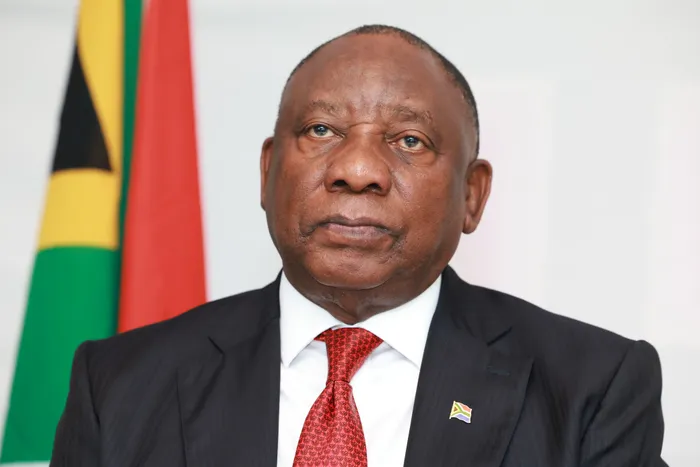Trump confronts Ramaphosa: A push against South Africa's Affirmative Action and BEE laws

President Donald Trump prepares to confront President Cyril Ramaphosa at the White House, criticising South Africa’s race-based policies and demanding protections for white minorities, especially Afrikaner farmers.
Image: GCIS
President Donald Trump is expected to confront South African President Cyril Ramaphosa at the White House on Wednesday over South Africa’s racial equity policies and the treatment of Afrikaners, a white ethnic minority.
The New York Times has reported that Trump intends to pressure Ramaphosa to reverse policies designed to address apartheid-era inequalities, which the Trump administration views as discriminatory toward white South Africans.
The meeting follows the Trump administration’s decision to admit a group of 49 white South Africans to the US as refugees, citing claims of persecution. The group, identified as Afrikaners, arrived via a US-funded charter plane last week.
The move has drawn criticism from South African officials, with Ramaphosa later describing their migration as a “cowardly” act.
Trump is also expected to demand that the South African government publicly denounce an anti-apartheid chant that called for the killing of Afrikaners, a chant the ruling African National Congress distanced itself from years ago.
A White House official told The New York Times that Trump will push South Africa to classify attacks on farmers as priority crimes, part of his broader claim, amplified in 2018, that white farmers are victims of a so-called “genocide.”
Another expected request from Trump will be that US companies operating in South Africa be exempt from Black Economic Empowerment rules, which require foreign-owned firms to sell equity to Black South Africans and other historically disadvantaged groups.
Trump’s actions form part of a larger campaign against diversity, equity, and inclusion (DEI) policies, one that his administration has extended to foreign policy.
IOL previously reported that Trump cut all foreign aid to South Africa and expelled its ambassador after the diplomat accused him of stoking white grievance politics.
Secretary of State Marco Rubio also refused to attend a G20 foreign ministers meeting in South Africa, citing opposition to DEI policies.
Trump officials have argued that post-apartheid equity laws harm white South Africans and warn that similar policies in the US could disenfranchise white Americans.
According to Christopher Vandome, a senior research fellow with the Africa program at the think tank Chatham House, “the Trump administration was using ‘a mix of fact and misinterpretation’ in its criticism of South Africa’s laws underpinned by race.”
Vandome added that fears among Afrikaners about land reform and violence stem from “a sense of victimhood due to the paranoia of always expecting there to be retribution for what happened in the past.”
He added that the Trump administration’s approach mixes fact with distortion: “This is kind of the Trumpian way,” Vandome told The New York Times. “You mix these things together, so it makes it very, very hard to engage with.”
South African police data does not support claims of large-scale or targeted killings of white farmers. However, Trump has continued to raise these allegations, posting in 2018 that he directed the Secretary of State to monitor land seizures and “the large-scale killing of farmers.”
Central to Trump’s concerns is South Africa’s recently adopted Expropriation Act, which allows the government to seize land without compensation.
Legal experts note that such seizures must meet constitutional standards and are subject to judicial oversight.
Ramaphosa has defended the law as a tool for fair land redistribution, writing on X that it is “not a confiscation instrument, but a constitutionally mandated legal process.”
Ramaphosa is expected to use the meeting to propose a trade deal that would give the US greater access to South Africa’s critical minerals, essential for clean energy technologies.
He will also attempt to repair relations with Trump ally Elon Musk, who has sharply criticised the country’s equity laws and claimed they block his company, Starlink, from operating there. Musk has called the policies “racist.”
Although the United States is South Africa’s second-largest trading partner, tensions have grown under Trump, who has portrayed equity-based laws as economically destructive. A White House official told The New York Times that the US will argue that these policies “threaten to collapse” South Africa’s economy.
Weekend Argus
Related Topics:
